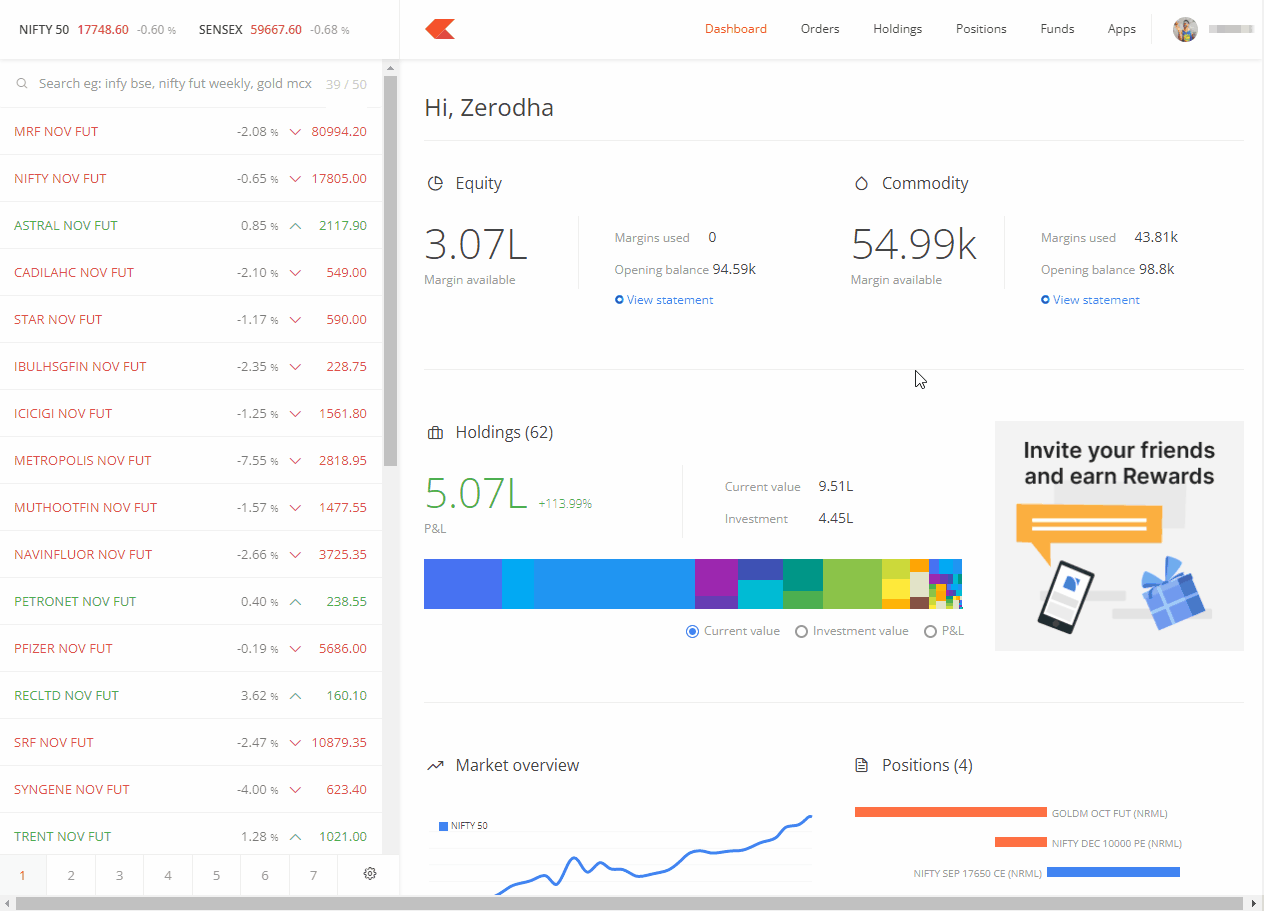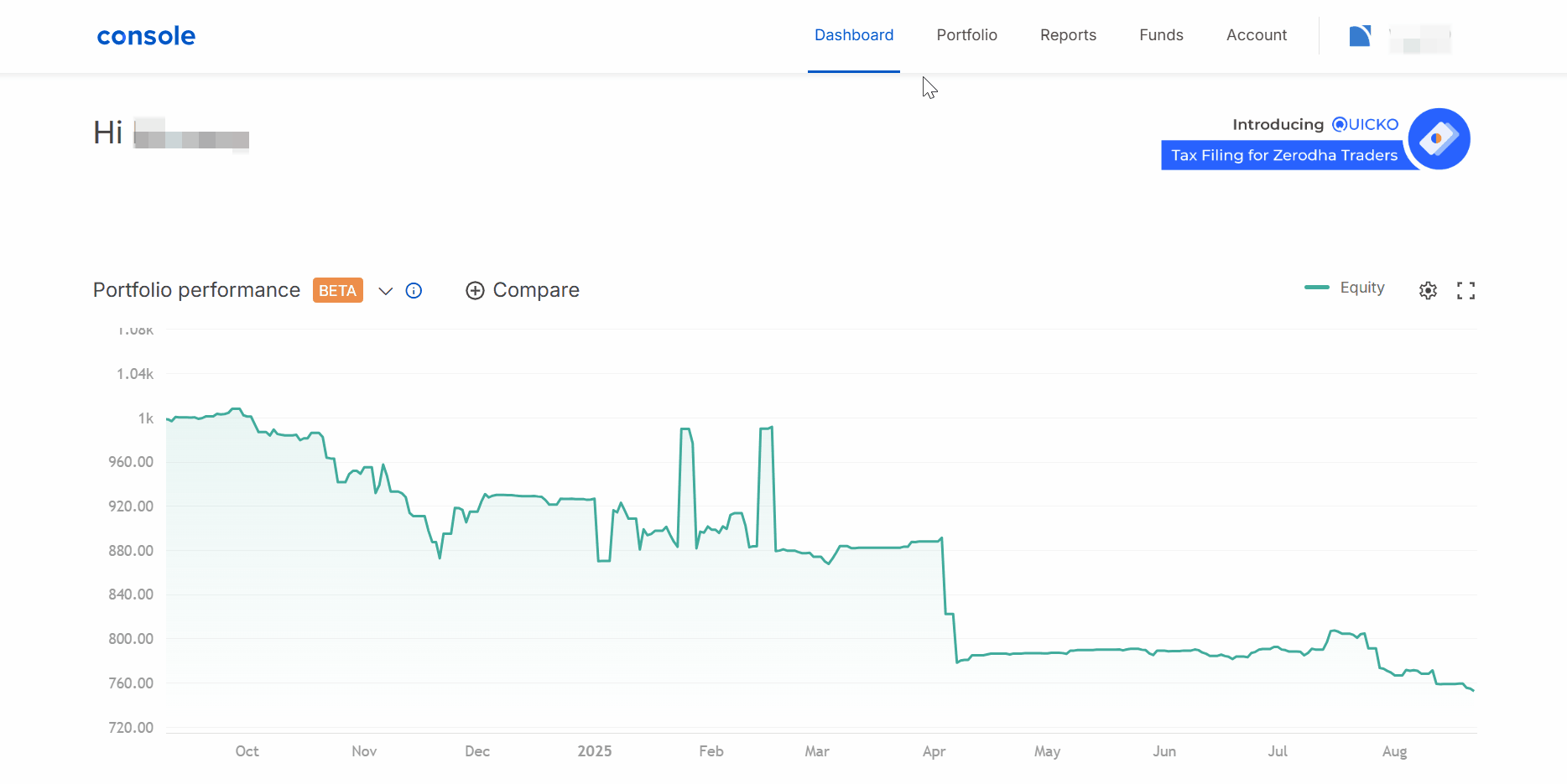You can view the breakdown of your holdings on Kite, which shows the purchase date, quantity, price, age (number of days since purchase), and Profit & Loss (P&L) for each holding. This information helps you determine whether your holdings qualify for long-term capital gains (LTCG) when held for more than 365 days, or short-term capital gains (STCG) when held for less than 365 days.
View breakdown on Kite app
- Tap on Portfolio.
- Select the stock.
- Tap on View breakdown.

View breakdown on Kite web
- Click on Holdings.
- Click on the Options.
- Select View breakdown.

Filter holdings on Console
- Click on Portfolio.
- Click on Holdings.
- Click on Filter and select Long term holdings or Short term holdings.

Although you can view your holdings separately, you cannot sell them separately. Income tax guidelines require you to use the First-In-First-Out (FIFO) method when accounting for purchases and sales of securities. This means your earliest purchased securities will be considered sold first from your demat account.
You can open a secondary demat account with Zerodha to separate your long-term investments from short-term trades, improve tax planning through better FIFO (First In, First Out) management, and organise your portfolio more effectively.
When you file income tax returns, you need to indicate whether your sale resulted in short-term or long-term capital gains or losses. Although your demat account securities are not differentiated by purchase date, both the IT department and Zerodha's P&L statements follow the FIFO method. When determining purchase price and capital gains or losses, your earliest purchased securities will be considered sold first.
Example scenario
Here's how FIFO works in practice:
- You held 10 quantities of Infosys for two years
- You purchased 15 additional quantities expecting an upside, resulting in 25 total quantities
- You sold 15 quantities following the FIFO method
- If your selling price exceeds your buying price, the first 10 quantities (held for more than two years) are subject to Long Term Capital Gain (LTCG)
- Your P&L for the remaining 5 quantities sold will be evaluated based on the buying price of your recently purchased stock to determine short-term capital gains






